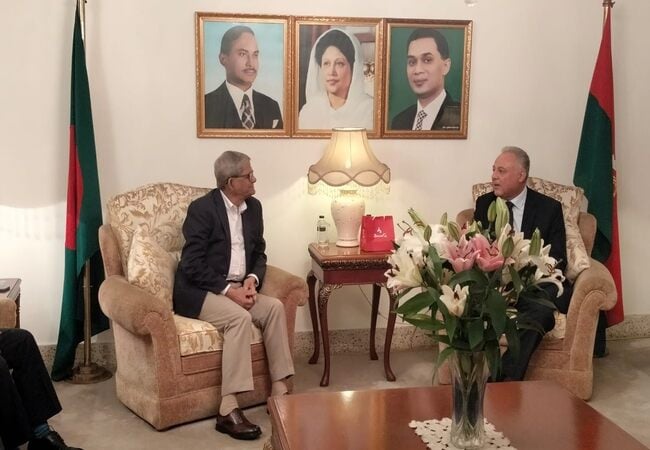

Ambassador of the Kingdom of the Netherlands to Bangladesh Joris van Bommel today held a meeting with BNP Secretary General Mirza Fakhrul Islam Alamgir.
The meeting took place at the BNP Chairperson's Office in Gulshan of the city at 3:30pm, BNP Media Cell member Shayrul Kabir Khan confirmed.
BNP Joint Secretary General (Foreign Affairs) Humayun Kabir, Organising Secretary Shama Obaed and member of the Foreign Affairs Advisory Committee to the BNP Chairperson Tabith Awal were present during the meeting.
